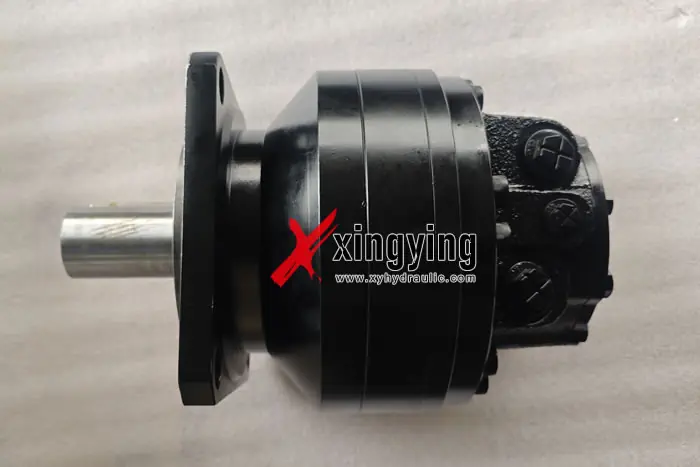What Are the Key Differences and Similarities Between Hydraulic Motors and Pumps?

Hydraulic systems are at the core of modern industrial and construction machinery, and understanding their major components—hydraulic pumps and hydraulic motors—is essential for optimal performance and equipment longevity. At Ningbo XingYing Hydraulics Co., Ltd, we specialize in the production and supply of high-performance hydraulic components for a wide range of applications. In this article, we’ll explore the key similarities and differences between hydraulic motors and pumps to help you make informed purchasing decisions.
Similarities Between Hydraulic Motors and Pumps
From a mechanical perspective, hydraulic motors and hydraulic pumps share notable similarities:
Reversibility in Principle
In theory, both devices are reversible. A hydraulic pump, driven by an electric motor, converts mechanical energy into hydraulic energy (flow and pressure). Conversely, a hydraulic motor receives pressurized fluid and converts it back into mechanical energy (torque and rotation).Structural Similarity
Structurally, many hydraulic motors and pumps share common components such as gears, vanes, or pistons. This resemblance allows for functional interchangeability in specific systems under controlled conditions.Working Principle
Both rely on variations in sealed working volumes to transfer fluid. A pump increases and decreases internal volumes to intake and discharge fluid. Similarly, a hydraulic motor uses this volume change to produce rotary motion.
Key Differences Between Hydraulic Motors and Pumps
Despite their similarities, hydraulic motors and pumps have significant design and functional differences:
Functionality and Output
A hydraulic pump is a power source that delivers pressure and flow, focusing on high volumetric efficiency.
A hydraulic motor, as an actuator, converts this pressure into torque and speed, with an emphasis on mechanical efficiency.
Rotation Direction and Design
Hydraulic motors are bi-directional, meaning they can rotate in both directions. Their internal structure is designed symmetrically.
Many hydraulic pumps (like gear and vane pumps) are uni-directional and must rotate in a specific direction.
Oil Port Configuration
Hydraulic motors typically feature an extra leakage oil port to handle internal oil seepage.
Pumps, except for Axial Piston Pumps, usually only include inlet and outlet ports, and internal leakage is routed to the suction side.
Efficiency and Speed Characteristics
Hydraulic pumps usually operate at higher speeds and achieve higher volumetric efficiency.
Hydraulic motors tend to run at lower speeds and require design considerations to maintain efficiency at various torque loads.
Component Differences
Gear motors have more teeth than gear pumps.
Vane motors have radially installed vanes with spring tension, while vane pumps use slanted vanes pressed by oil pressure and centrifugal force.
Suction and discharge port sizes also differ depending on whether it’s a pump or a motor.
Choose the Right Hydraulic Solution for Your Application
Understanding the functional differences between hydraulic pumps and motors is vital in selecting the right product for your system.
Whether you need reliable high-efficiency pumps or torque-optimized hydraulic motors, Ningbo XingYing Hydraulics Co., Ltd offers a wide selection of precision-engineered components made in China.
All our products are backed by rigorous quality control and expert support to ensure your machinery runs smoothly and efficiently.
contact us today to learn more about our hydraulic solutions or request a quote tailored to your industry and application.
Why Choose XingYing Hydraulic as Your Supplier?
1.Direct from Manufacturer: Benefit from competitive pricing on top-quality hydraulic products, sourced directly from our factory in China.
2.Custom Solutions: Our expertise allows us to tailor hydraulic components to your precise requirements, ensuring optimal performance.
3.Reliable Supply: Count on us as your trusted supplier for consistent quality and timely delivery, backed by our reputation in the industry.